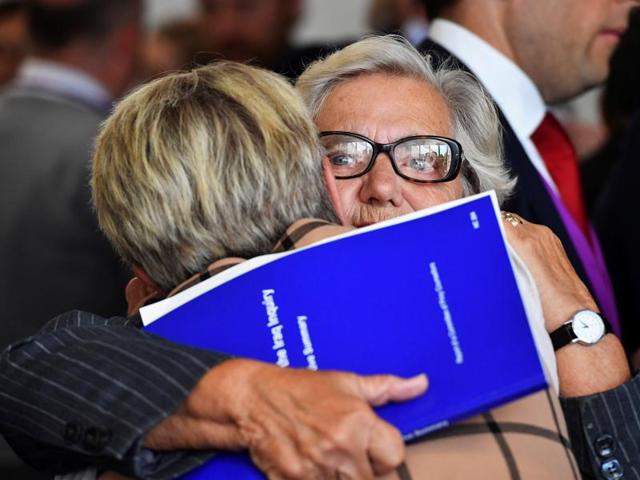In India, an omerta on national security - the lesson from Chilcot report
When will New Delhi be willing to confront its past, and introduce a more transparent culture around national security issues in general, and the wars it has fought in particular?
The United Kingdom just witnessed the release of the Chilcot report on the Iraq War. The committee, led by Sir John Chilcot, has some devastating – even if not entirely surprising – findings.

But for India, it throws up another question.
When will New Delhi be willing to confront its past, and introduce a more transparent culture around national security issues in general, and the wars it has fought in particular?
Chilcot report
The Chilcot inquiry concludes that the UK chose to enter the war without exhausting all peaceful options, and then PM Tony Blair exaggerated the threat posed by Iraq’s leader Saddam Hussein. It exposes Blair’s assurance to US President George Bush, “I will be with you, whatever’ – signalling how the country surrendered its right to take decisions to a dominant partner.
It speaks of how the decision making processes that led to the war were not satisfactory, the UK’s military was not equipped, the UK had little role in post-war planning, and there was no post-invasion strategy. At the end of it all, hundreds of thousands of Iraqis were killed, and UK did not meet its stated objectives.
There is now little doubt, even among many proponents of the war in the UK, that 2003 was a costly mistake with multiple geo-political consequences. But the silver lining is that there has been an official attempt to hold those in positions of power – particularly Blair – accountable.
Commodore (retd) C Uday Bhaskar, director of the Society for Policy Studies, says, “It may have taken seven years, but the report shows that UK has the moral and institutional ability to look back objectively at its own track record. It displays commendable integrity in recording that 150,000 Iraqis were killed in a war that was not justified. Even the Americans have not been able to do this so candidly.”
The omerta
And perhaps that is the lesson for India, where there is often a code of silence around national security issues. Ministry files are still not declassified; intelligence organisations remain opaque without any parliamentary oversight; institutional records of decision-making processes are often weak; and the country is still to come to terms with its wars.
Take the Henderson-Brooks report on the 1962 war.
The report was commissioned to look into the reasons for the Indian rout and offer future lessons. It is understood to have blamed both the political and the military leadership. In 2014, the Australian journalist and author of an authoritative book on the war, Neville Maxwell, put parts of it on his website.
But all governments have used the cover of ‘national security’ to keep it secret. The UPA defence minister, A K Antony, even said it had current operational value. When BJP was in opposition, leader of Opposition in the Rajya Sabha, Arun Jaitley, called for the release of the report. But as soon as he crossed over to the other side in Parliament, and took over as defence minister (for a brief period), Jaitley changed his mind. He said, in a reply to the Parliament, that releasing the report would not be in ‘national interest’.
Most experts argue that the report will unleash a much-needed conversation about the relationship between the political leadership and the army as well as the political leadership and its intelligence arms in a modern democracy. A former diplomat told HT, “If we want to create robust decision-making processes, how can we shy away from acknowledging our mistakes and having a public conversation around it?”
Read | India-Pak tensions pre-occupied UK before 2003 war
India did slightly better in coming to terms with the Kargil War, in 1999. The fact that India won the war, and succeeded in pushing back Pakistan, probably enabled a more honest assessment. But it still did not go the whole way.
The government appointed the K Subrahmanyam committee to review events leading up to Pakistani aggression. It pointed out that the government was taken in by complete surprise at the intrusion. It made scathing observations about the nature of India’s intelligence structure, and made a range of recommendations to overhaul the national security structure. But critics said it should have been more direct in attributing blame.
A watered down version of the Subrahmanyam report was made public, but several chapters, and all the annexures were deemed classified and were not released. But getting the report out was not easy. “What was eventually released was a sanitised version. And it became public because Subhramanyam and another member, B G Verghese, pushed hard for it. They eventually convinced the NSA Brajesh Mishra, who prevailed over the system,” recalls Bhaskar.
Confronting the past
Srinath Raghavan, one of India’s foremost historians, has remarked that the Chilcot report makes a number of other points – the weakness of the Cabinet system in dealing with foreign and security policy; use and misuse of intelligence in influencing decisions within and outside government; the manner in which international law is used to legitimize decisions taken for other decisions; what happens when weaker allies abdicate their own judgments simply to maintain their influence with the dominant partner and more.
As India’s global ambitions grow, it is not immune from any of this. To ensure it does not make such mistakes, it needs to confront its own past.
Also read | 6 key findings of Chilcot probe into Britain’s role in Iraq war




